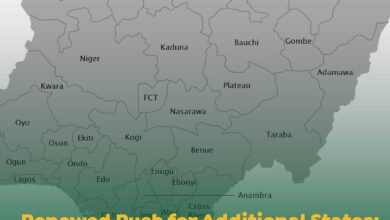
Nigeria’s Democracy Day isn’t just a celebration of a date on the calendar. It’s a day in which the liberation from the shackles of military rule and the hard-won freedom after years of colonial rule is cherished.
As we raise the flag on this national holiday, let’s turn back the pages and explore 12 of the pivotal events that has shaped Nigeria since independence.
Independence Day – October 1, 1960:
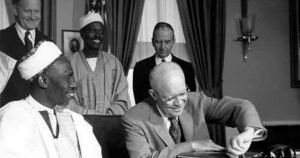
Nigeria gained independence from Britain on October 1, 1960, marking the end of colonial rule. This was a momentous occasion that filled Nigerians with hope for a brighter future.
The Nigerian Civil War (1967-1970):
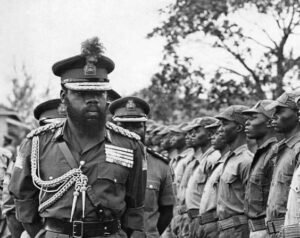
The war was a brutal conflict that erupted in 1967, following the declaration of independence by the southeastern region of Biafra. The war lasted for three years and resulted in the deaths of millions of Nigerians, mostly civilians. The war left deep scars on the nation and continues to shape Nigerian politics today
Festac ’77:
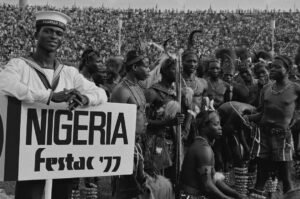
The Second World Black and African Festival of Arts and Culture (FESTAC) was a major international festival held in Lagos in 1977. The festival celebrated African culture and showcased African music, art, literature, and drama. FESTAC ’77 was a significant moment for Nigeria’s cultural identity
Wole Soyinka’s Nobel Prize:
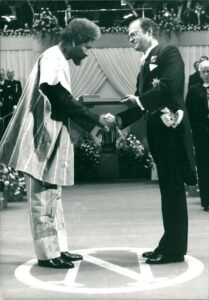
Wole Soyinka became the first African to win the Nobel Prize in Literature in 1986, recognizing his impactful writing.
The Annulment of the 1993 Election:
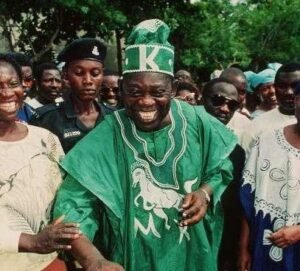
The 1993 Nigerian presidential election was believed to be free and fair, with Moshood Abiola emerging as the winner. However, the military government of the day annulled the results, sparking widespread protests and political unrest.
Rashidi Yekini bangs Nigeria”s First World Cup Goal:

The gangling Yekini proudly smashed home the nation’s first-ever World Cup goal at USA 94. His emotional celebration, clutching the net and screaming in triumph, becomes an iconic image, forever intertwined with Nigeria’s footballing liberation.
Nigeria’s First Olympic Gold Medal (1996):
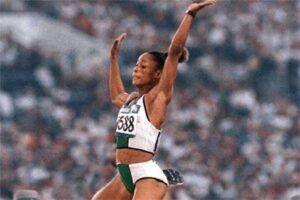
Chioma Ajunwa’s victory in the Long Jump at the 1996 Atlanta Olympics marked a historic moment for Nigerian sports.
Return to Civilian Rule (1999):

After decades of military rule, Nigeria returned to civilian government in 1999. This was a watershed moment for the country and raised hopes for a more democratic future.
Fela Kuti’s Afrobeat Movement:
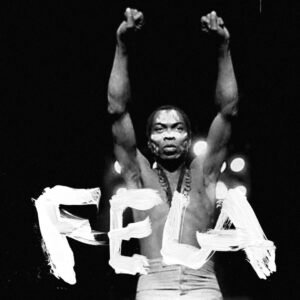
Fela Kuti’s revolutionary music, Afrobeat, became a symbol of resistance and cultural pride .
Agbani Darego – Miss World:

In 2001, Agbani Darego became the first Nigerian to win the Miss World pageant, putting the country in the global spotlight.
The #EndSARS Movement (2020):
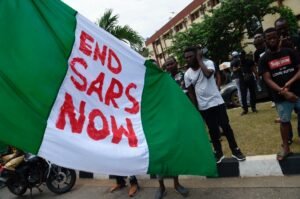
The #EndSARS movement was a series of protests against police brutality in Nigeria. The protests erupted in October 2020 after a video went viral showing a young man being beaten by police officers of the Special Anti-Robbery Squad (SARS).
2023 Election:
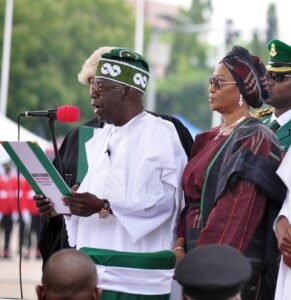
Three decades after the landmark June 12 poll, Nigeria navigated another critical electoral juncture, marked by concerns about potential unrest and instability. Despite these anxieties, the election was intensely contested, culminating in the victory of Bola Ahmed Tinubu as President ahead of his formidable rivals



